A festive meal that’s good for everyone - isn’t that what we all want? Yet sadly, some of the foods we typically eat at Christmas are produced at terrible cost to people far away. The sugar and cocoa used to make all those sweet treats may well have been grown by slaves. Cocoa is also at high risk for child labour: around 20% of all cocoa produced worldwide is produced by kids who work full-time instead of going to school. And, if you’re ditching the ham and turkey for salmon or seafood, be careful with what you buy: fish is the food we eat that’s most likely to be caught or processed by slaves.
However, do not despair! A Christmas meal that’s good for everyone is possible: click through on the links below to find reliable slave-free options. Also available as a summary pdf. You might also like to check out our accompanying post on chocolate gifts.
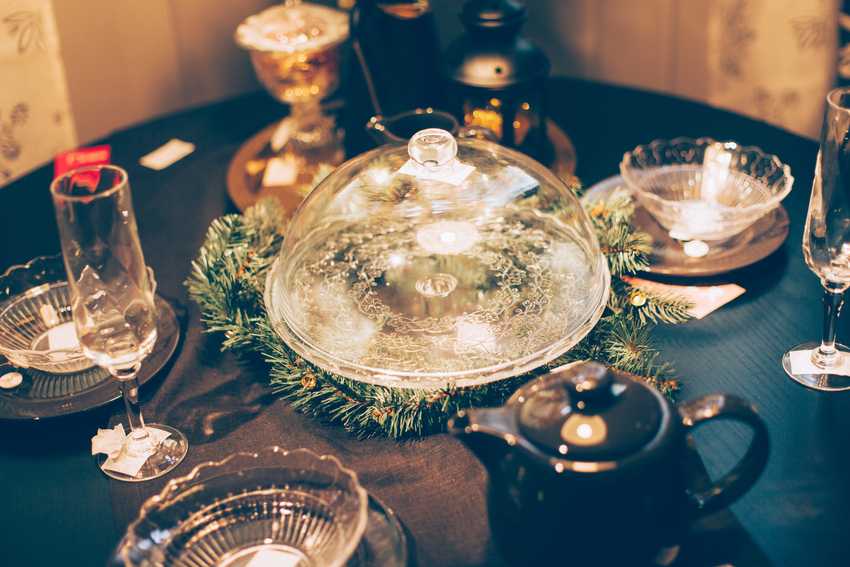
In a hurry? Read this summary.
Table of Contents
Drinks, juices and cordial
Most soft drinks contain a lot of sugar, an ingredient likely to be produced with slave labour. Fortunately, there are a many widely-available soft drinks that are made with slave-free sugar.
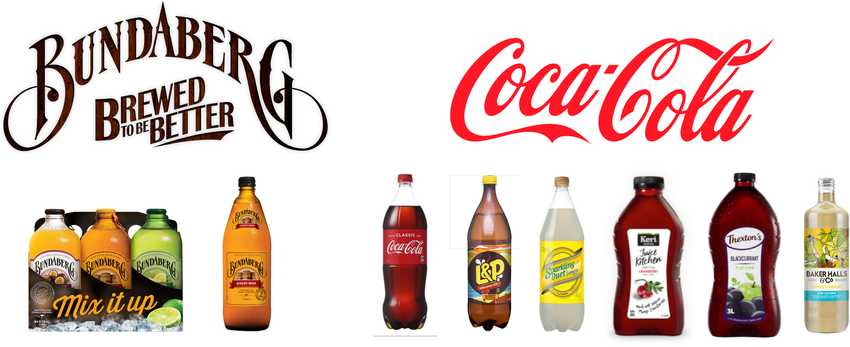
Firstly, anything made with Australian sugar is slave-free due to the strong employment law in that country. Drinks made with Australian sugar include:
-
The Bundaberg drinks range. This includes their classic ginger beer, but also a range of lemon soft drinks and sparkling fruit drinks. You should be able to find these in any supermarket.
-
The Coca cola drinks range. In terms of things you might want to serve at Christmas, this includes:
- the classic Coca cola soft drinks (Coke, Fanta, Lift, L&P, Sprite);
- the Schweppes soft drink range;
- Thextons juices;
- Baker Halls juice concentrates (in lime, blackcurrant, lemon & barley, orange & barley and cranberry & blackcurrant);
- Keri juices (most of these don’t actually include added sugar but those that do - like their cranberry and tomato juices - use Australian sugar).
In addition, New Zealand has one soft drink company that sells Fairtrade certified drinks: Karma Drinks. Most of their products are Fairtrade certified (although not their kombucha, swtichel or juices). They’re also organic. They buy the Kola nuts for their signature Karma Kola direct from the producers in Sierra Leone and have a foundation that funnels a portion of profits into development projects in those communities.
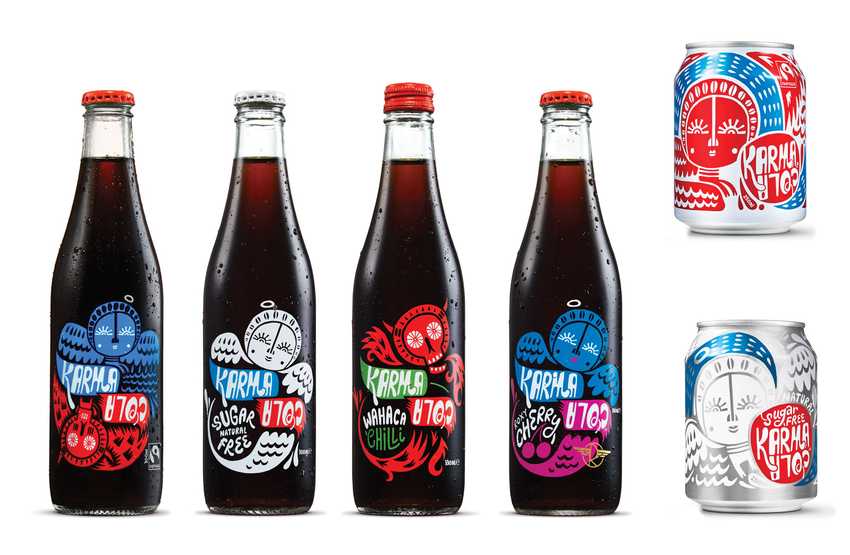
Karma drinks come in both 300mL bottles and 250mL cans in the following flavours:
- Karma cola
- Sugar free Karma cola
- Lemmy lemonade
- Gingerella ginger ale
- Summer orangeade
- Razza raspberry lemonade
You can buy boxes of 15 x 300mL bottles ($45) and trays of 24 cans ($60) direct from their website, or you can buy singles from various health food shops and supermarkets for around $4.
Snacks
Many snacks, sadly, have slave labour in their supply chains. Here are some slave free options.
Chocolate
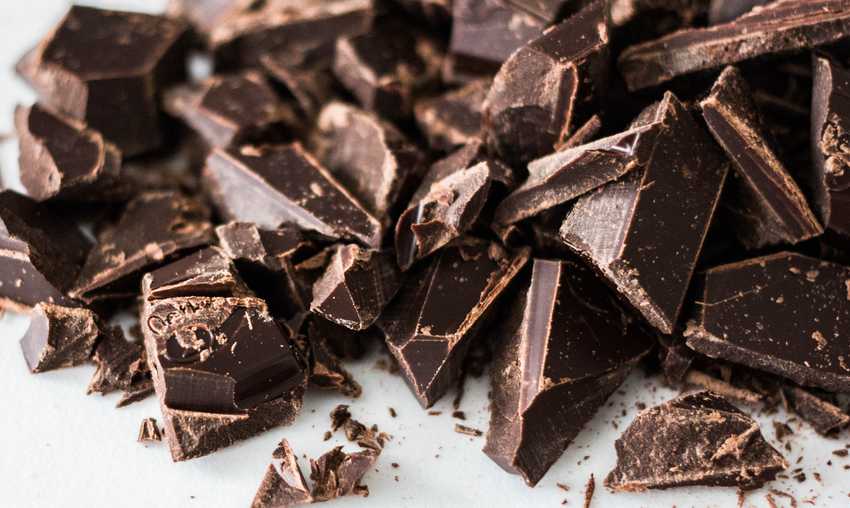
Photo by Charisse Kenion on Unsplash
Around 20% of all cocoa is produced by kids. If you want to serve slave-free chocolate, our cocoa guide has a large number of options for chocolate blocks. Our 2022 Christmas chocolate guide also covers a wide range of luxury chocolate products that are free of both child and slave labour.
Chocolate sweets

Chocolate sweets with Rainforest Alliance certification (some still using the older UTZ logo) are widely available. Options include:
- Allen’s Fantales (around $3 for a 120g bag).
- Smarties (around $3 for a 120g bag).
- Countdown own brand milk chocolate almonds, sultanas, peanuts, licorice bullets ($2.50 for a 180g bag; licorice is a 270g bag for the same price). Note that the licorice is made with slave-free sugar as well as cocoa.
- Countdown premium cocoa dusted almonds; $4 for a 150g bag.
The Alison’s Pantry Indulgent range (in the bulk bins at PakNSave and New World) also uses Rainforest Alliance cocoa. See our 2022 Christmas chocolate guide for further options.
Licorice allsorts
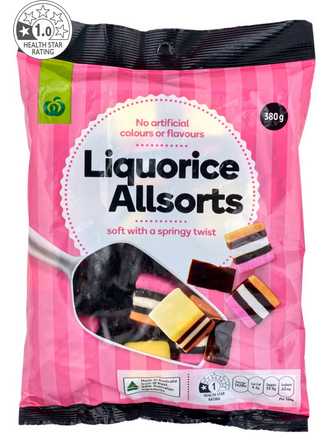
Countdown own brand licorice allsorts are made with slave-free Australian sugar. Around $3 for a 380g bag.
Biscuits

Griffin’s has brought out candycane flavoured mallow puffs for Christmas. These are Rainforest Alliance certified, around $3 for a 180g packet. If you want to serve other chocolate biscuits, note that all Griffins chocolate biscuits except Cameo Cremes are now made with Rainforest Alliance-certified chocolate.
When it comes to shortbread, Arnotts Farmbake, Arno shortbread, Creme shortbread and Scotch fingers are all made with slave-free Australian sugar.
Our gifting chocolate guide also lists chocolate biscuit sampler boxes.
Crackers
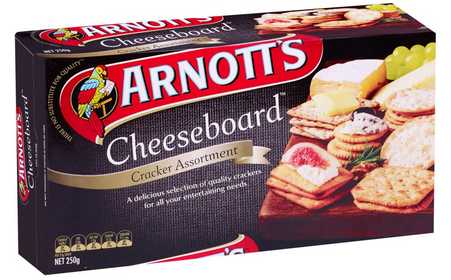
Just Kai focuses on fish, cocoa and sugar, the foods at highest risk of slavery in their supply chain. However, we are aware that slave labour is used in many of the ingredients used to make crackers - especially tomatoes and palm oil. If you’re serving crackers, perhaps as part of a cheese board, Arnotts is making excellent efforts to remove slave labour from their cracker supply chain. They sell a cheeseboard sampler box, as well as various crackers and savory biscuits including the Jatz, Vita-Weat, Shapes and Arnotts cracker chips ranges.
If you’ll be serving smoked salmon on your cheese board, see below for slave-free options.
Dried fruit and nuts
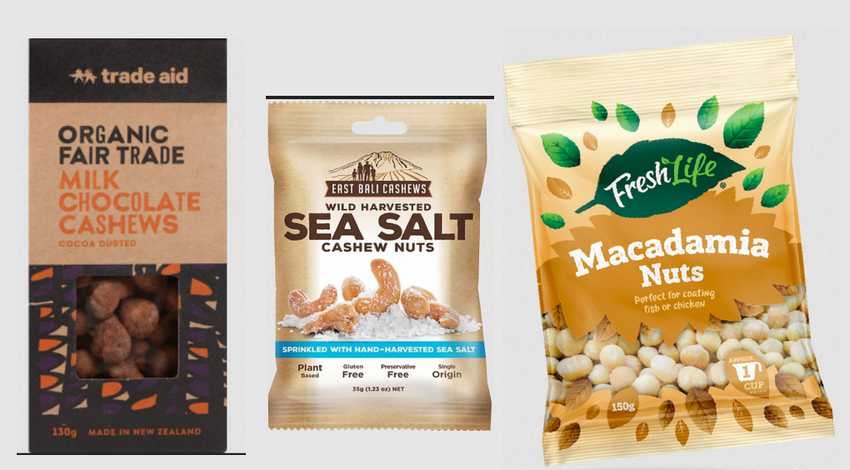
Photo by engin akyurt on Unsplash
Like crackers, dried fruit and nuts aren’t part of Just Kai’s core focus. However, we have recently conducted extensive research into the nut industry. Child labour, forced labour and/or terrible working conditions are common in the hazelnut, cashew and Brazil nut industries.
- For cashews, we recommend Trade Aid cashew nuts (also available chocolate coated) or the East Bali cashew range (look for them at New World).
- For hazelnuts, look for nuts grown in New Zealand, the US or Australia. The hazelnuts in the Alison’s Pantry range (sold in the bulk bins of PakNSave and New World) are currently sourced from the US; a wide range of products made with NZ-grown hazelnuts can be bought online here.
- For Brazil nuts we have yet to find any slave-free options, so they are best avoided.
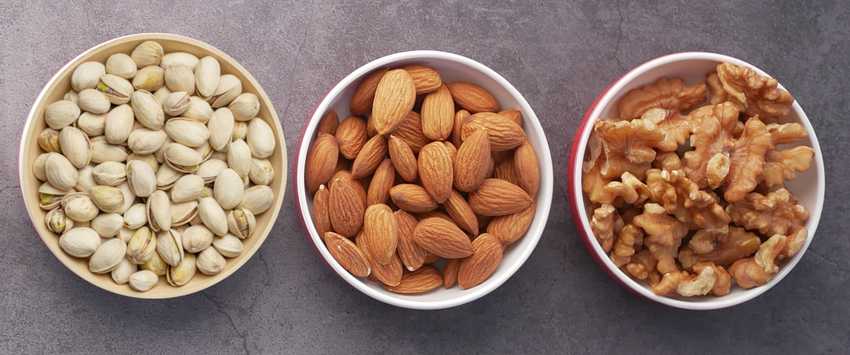
In terms of other nuts:
-
all almonds, pistachios and walnuts sold in New Zealand will be slave free;
-
peanuts and macadamia nuts are generally slave free, but not always: to be sure yours are slave free, look for:
- Fresh Life macadamias (available from Countdown, as well as some New World stores);
- either the honey roasted or roasted salted peanuts from the Alison’s Pantry range (at PakNSave and New World).
Just Kai hasn’t looked into dried fruit in detail, so we can’t tell you which are the high and low risk options. However, we are very confident the Trade Aid range (which includes guava, papaya, pineapple and mango) will be slave free.
Dessert
Ice cream
Ice cream contains a lot of sugar, and sugar is one of the foods most likely to be produced with slave labour. It also commonly includes cocoa or chocolate: as well as being at risk of slave labour, more than 20% of the world’s cocoa is grown by kids.
To avoid supporting all that when you buy ice cream, you have two options: Ben & Jerry’s and Little Island.
Ben and Jerry’s
Not only is the whole Ben & Jerry’s range is Fairtrade certified (meaning not just the sugar and cocoa, but also the coffee, bananas and vanilla they use are Fairtrade), they’ve also committed to making sure all their cocoa farmers get a living income. They’ve got a bunch of other awesome values too!
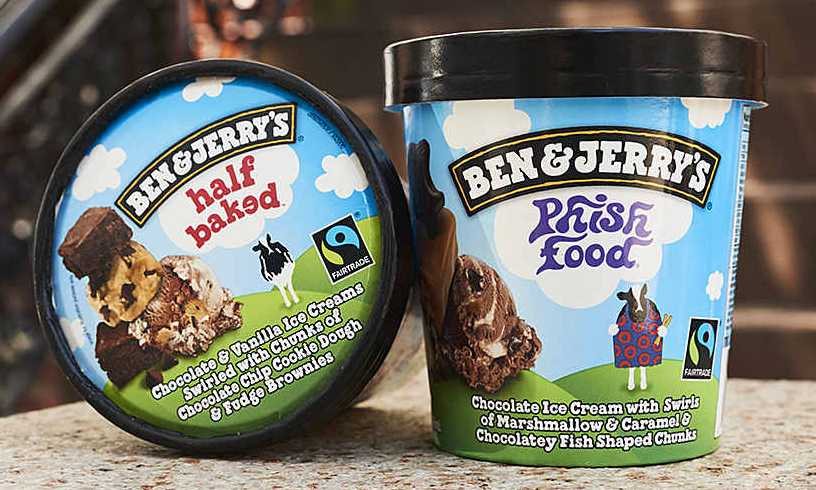
Ben & Jerry’s do 458mL ice cream tubs in a wide range of flavours, including:
- Chocolate chip cookie dough core
- Chocolate chip cookie dough
- Chocolate fudge brownie
- Triple caramel chunk
- Salted caramel brownie
- Chocolate caramel cookie dough
they also do Non-dairy ice cream in:
- Chocolate fudge brownie
- Chocolate chip cookie dough
- Chocolate caramel cluster
- Peanut butter and cookies
Ben & Jerry’s are stocked by most supermarkets, as well as many dairies and petrol stations. If you’re in Christchurch, you can even order Ben and Jerry’s online. Look here for your nearest stockist. Around $13 for a 458mL tub.
Little Island
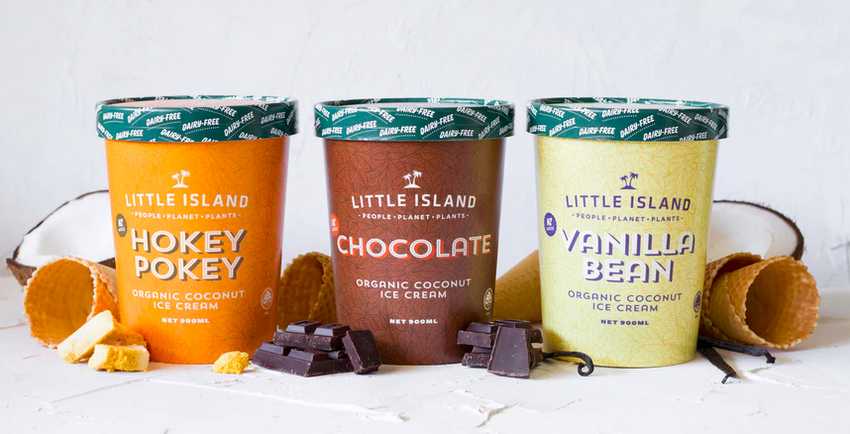
Little Island no longer display the Fairtrade logo on their packaging, but we have learned from correspondence that all their cocoa and all their sugar is Fairtrade certified. They sell 900mL tubs of:
- chocolate
- vanilla
- hokey pokey
- raspberry ripple
as well as further flavours in 450mL tubs. Around $12 for 900mL or $10 for 450mL
Stocked at some Countdown and New World supermarkets, as well as health food stores. Little Island ice creams are all vegan and organic.
Kāpiti, Magnum and Trumpet
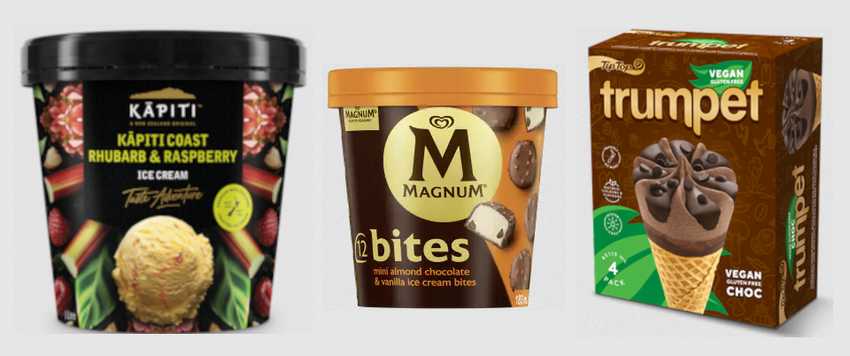
The ingredient in ice cream most likely to have been produced with slave labour is cocoa: whilst they don’t use slave-free sugar (or other slave-free ingredients), Trumpet, Kāpiti and Magnum all use Rainforest Alliance certified cocoa in all their products.
These should all be available at your local supermarket. They all have single-serve options that’d be great for your Christmas BBQ; magnums also come in 445mL tubs, Kāpiti in 1L tubs. All three include dairy free/plant based options.
Jelly

If you want to serve jelly (or are making trifle), the Countdown own brand jelly crystals range are made with slave-free Australian sugar. The jelly crystals come in strawberry, raspberry and lime flavours; around $1.20 for an 85g box.
Baking ingredients
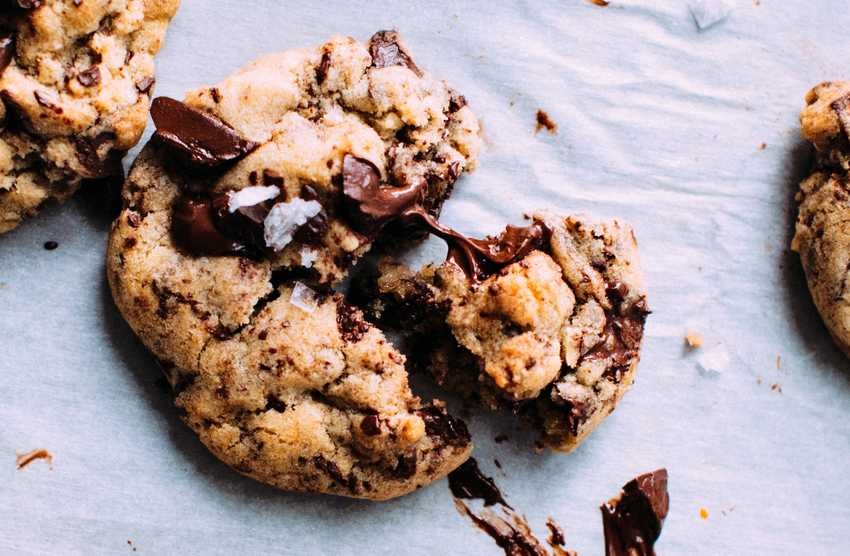
Image credit Jennifer Pallian on Unsplash
Christmas is a great time to bake! Fortunately, cocoa and sugar free of child and slave labour are readily available throughout New Zealand. For slave free sugar you’ll probably need to shop at either Countdown or Trade Aid, but slave free cocoa and baking chocolate are available at every supermarket in New Zealand :-)
Check out our section on dried fruit and nuts if you’re using those in your baking.
Sugar
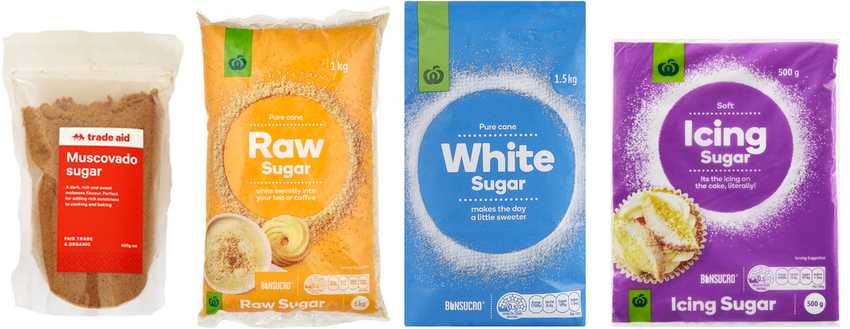
There are two certifications we trust for slave-free sugar: Bonsucro and WFTO. Both involve thorough audits for child and slave labour on sugar plantations and in sugar mills, although the latter is significantly better for the workers. Bonsucro checks for safe working conditions and ensures workers are paid at least the legal minimum wage for their country; in addition WFTO does a range of things to support small producers.
Countdown own brand sugar has Bonsucro certification. They do white, brown, raw, icing and caster sugar in bags between 500g and 5kg. It’s cheaper than Chelsea :-) Note that the brown and raw sugars are out of stock as of mid-November due to a recall - hopefully that will have resolved by Christmas!
Trade Aid sells WFTO certified golden granulated sugar in 500g, 1.5kg and 5kg bags ($5.29, $8.99 and $23.99 respectively), as well as 400g bags of muscovado sugar ($6.99). Buy online, from one of their physical stores or from some supermarkets and whole food stores.
Ready-made icing
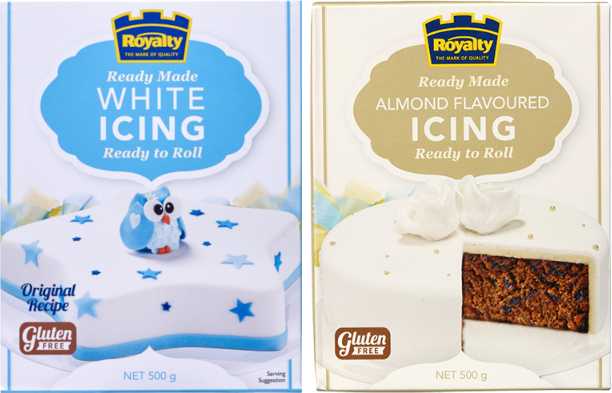
We haven’t systematically contacted all ready-made icing brands, but we did notice that the Royalty brand was marked as being made in Australia. We checked, and it is made with sugar that was grown and processed in Australia, so is slave-free. Available widely, around $4.50-$5 for a 500g box.
Cocoa

We trust three certifications for cocoa products: Rainforest Alliance (for which some products are still using the old UTZ logo), Fairtrade and WFTO. Structurally these are quite different from each other, but they all guarantee no child labour, no forced labour, safe working conditions etc.
- Rainforest Alliance-certified cocoa is available from Nestle Baker’s Choice (190g tin, around $4) in pretty much any supermarket in the country. If you are concerned about Nestle’s ethics, read up on why we are happy to support them. Countdown own brand cocoa is also Rainforest Alliance/UTZ certified (around $6 for a 375g box), as is West Coast Cocoa company baking cocoa (available online, 250g tube, $16).
- Trade Aid sells WFTO-certified cocoa powder in 200g boxes and 2kg bags ($6.99 and $44.50 respectively). Buy online, from one of their physical stores or from some organic and whole food stores.
- From correspondence, we have learned that Pam’s superfoods raw cacao powder is also Fairtrade certified, even though they have chosen not to display the certification mark. That’s not ideal, but it’s a good option if you’re after a raw cacao powder. It’s about $6 for a 250g bag.
Chocolate chips and baking chocolate

Using the same three certifications mentioned above (and noting again that some of the Rainforest Alliance certified products are still using the old UTZ logo):
-
Dark chocolate chips:
- Countdown own brand, 200g for around $2.80, RA certified
-
Dark chocolate drops:
- Trade Aid, 225g bag for $8.99 or 450g for $16.99, WFTO certified
- Nestle Baker’s Choice choc bits, 200g for around $4.50, RA certified
- Countdown own brand, 200g for around $2.80, RA certified
-
Milk chocolate drops:
- Nestle Baker’s Choice choc bits, 200g for around $4.50, RA certified
- Countdown own brand, 200g for around $2.80, RA certified
-
White chocolate drops:
- Nestle Baker’s Choice choc bits, 200g for around $4.50, RA certified
- Countdown own brand, 200g for around $2.80, RA certified
-
Dark baking chocolate:
- Nestle Baker’s Choice dark cooking chocolate, 200g for around $3.50, RA certified
- Countdown cooking chocolate dark, 200g for $3.20, RA certified
-
Milk baking chocolate:
- Countdown cooking chocolate milk, 200g for $3.20, RA certified
-
Chocolate melts:
Other baking ingredients
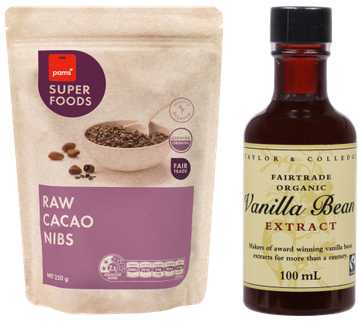
- The cacao nibs and cacao butter in the Pam’s superfoods range are Fairtrade certified, even though they don’t display the Fairtrade logo.
- Some PakNSave and New World supermarkets sell Fairtrade certified vanilla. Vanilla isn’t one of the foods at highest risk of slave labour, but the vanilla industry uses a great deal of child labour. Please consider buying Fairtrade! You’re looking for the 100mL bottle from Taylor and Colledge. Note that none of the rest of that brand is Fairtrade certified, just the 100mL bottle. It sells for around $10.50.
Shellfish, prawns and salmon
The traditional Kiwi Christmas seems to focus on ham, lamb or turkey, but maybe this year you’re doing something a bit different and serving seafood? Perhaps mussels, or prawns on the BBQ, or baked salmon in place of the traditional roast? Seafood is, sadly, at very high risk of slave labour in its supply chains (even if it’s produced in New Zealand), BUT we’ve found plenty of slave-free options :-)
Shellfish
Most shellfish is slave-free. Our research has found no evidence of any form of slavery or child labour in the New Zealand shellfish industry, with one sole exception. Farmed paua are fed on fishmeal and oil just like salmon, and so have the same risks of slavery in the production of that feed. None of the New Zealand paua farms that we have contacted have replied to our queries so we cannot recommend any of them. However, most of the paua for sale is wild-caught, so this doesn’t limit your options much.
Mussels
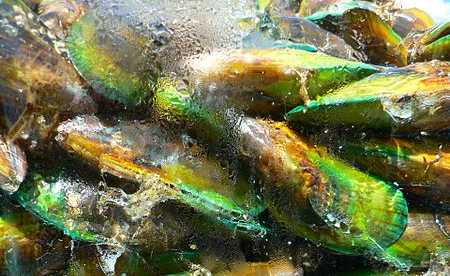
The only mussels likely to be for sale in New Zealand this Christmas are farmed New Zealand green-lipped mussels. These are all slave free and can be purchased with confidence regardless of brand. That goes for mussels in the shell and mussels in all stages of processing.
Oysters

The only oysters likely to be for sale in New Zealand this Christmas are either farmed or wild-caught in New Zealand. These are all slave free and can be purchased with confidence regardless of brand. That goes for oysters in the shell and in all stages of processing.
Scallops
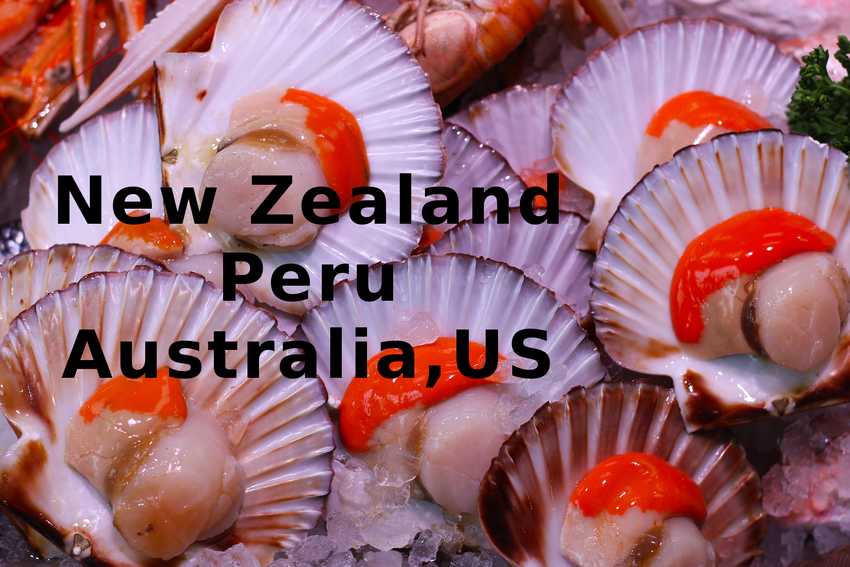
Some of the scallops for sale in New Zealand this Christmas will be wild-caught New Zealand scallops. These will be clearly labelled as such and are definitely slave-free: you can buy them with confidence.
The majority of scallops sold in New Zealand are imported; most of them come from Peru. We are confident the Peruvian scallop industry is slave-free, although it is not technically free of child labour. 17-year-olds are allowed to work on Peruvian industrial fishing boats, which violates ILO regulations against child labour as this is considered hazardous work. However, we do not consider this a major violation and are happy to recommend Peruvian scallops.
Australian and US scallops are also slave-free; however, all other imported scallops should be avoided. The remaining major supply countries (including Japan and the UK) are all at high risk of slave labour in their scallop industries. We have contacted a number of companies supplying such scallops and none have reported seeking any kind of slave-free assurances from their suppliers.
Suitable scallops are widely available. We’ve seen them online from Gourmet Seafood and Oceans North (but please don’t buy their Chinese ones) amongst others. Likely your local fish shop also sells them.
Prawns

Most prawns are farmed: they are a high-risk product as slavery is common in the production of feed for farmed prawns, on prawn farms and in the processing of prawns. Very few companies that we have contacted have been able to assure us they have a slave-free supply chain. At this stage we can only recommend the following:
For whole prawns (i.e. with their heads and shells intact) any Argentinian red prawns or wild-caught Australian prawns are slave free.
- wild-caught whole Australian prawns are sold under the Ocean Pearl brand in Countdown supermarkets as well as sometimes under their own brand from the fish counter.
- Solander sells Australian wild-caught whole King (in three sizes), and Tiger and prawns online.
- whole Argentinian prawns are available online at both Tai Wah and Nishin (but please don’t buy the other prawns from Nishin - just the ARG ones). They’re also sometimes sold at the fish counters of PakNSave and New World supermarkets, although we didn’t see them when searching online in late November. in the past. Sometimes they’re labelled ‘red prawns’ or ‘Argentinian red shrimp - they’re fairly easy to recognise as they’re the only prawns that are quite pink when raw.
For processed prawns, the only brand we know of that is checking for forced labour throughout its supply chain is Kingfisher. Kingfisher prawns are sold in PakNSave and New World, and their range includes both raw and cooked prawns and shrimp, all prepeeled.
Salmon

Whilst the tinned salmon you find in New Zealand supermarkets is typically wild caught, the fresh, frozen or smoked salmon you’ll be serving at Christmas will have been farmed, most likely in New Zealand or Australia. Such farms are at extremely low risk of child or slave labour due to our strong labour laws. However, sadly that doesn’t mean all farmed salmon is slave free. The salmon is fed on a feed that includes both fishmeal and fish oil, both of which are commonly made from fish caught by forced labour. Farmed salmon should only be purchased if the farm ensures their feed has a slave-free supply chain.
Fortunately, one of New Zealand’s largest salmon companies, NZ King Salmon, has committed to only using certified slave-free feed, as has Huon from Australia. All salmon sold at the fish counter of Countdown supermarkets has been produced by one or other of these companies. You can also buy NZ King Salmon products under their brands Regal and Southern Ocean.
Under the Regal brand, New Zealand King Salmon sells cold-smoked salmon slices, both hot- and cold-smoked salmon steaks, smoked salmon salsa nibbles and a salmon dip.
They also sell budget smoked salmon slices under the Southern Ocean brand.

If you buy salmon from the fish counter of a PakNSave or New World supermarket, it will either be produced by NZ King Salmon or Sanford. Sanford is currently using slave-free feed (although it hasn’t committed to doing so in the future). Similarly, Mt. Cook (who also produce hot and cold-smoked salmon under the brand Aoraki) is currently using slave-free feed but hasn’t committed to doing so into the future.
